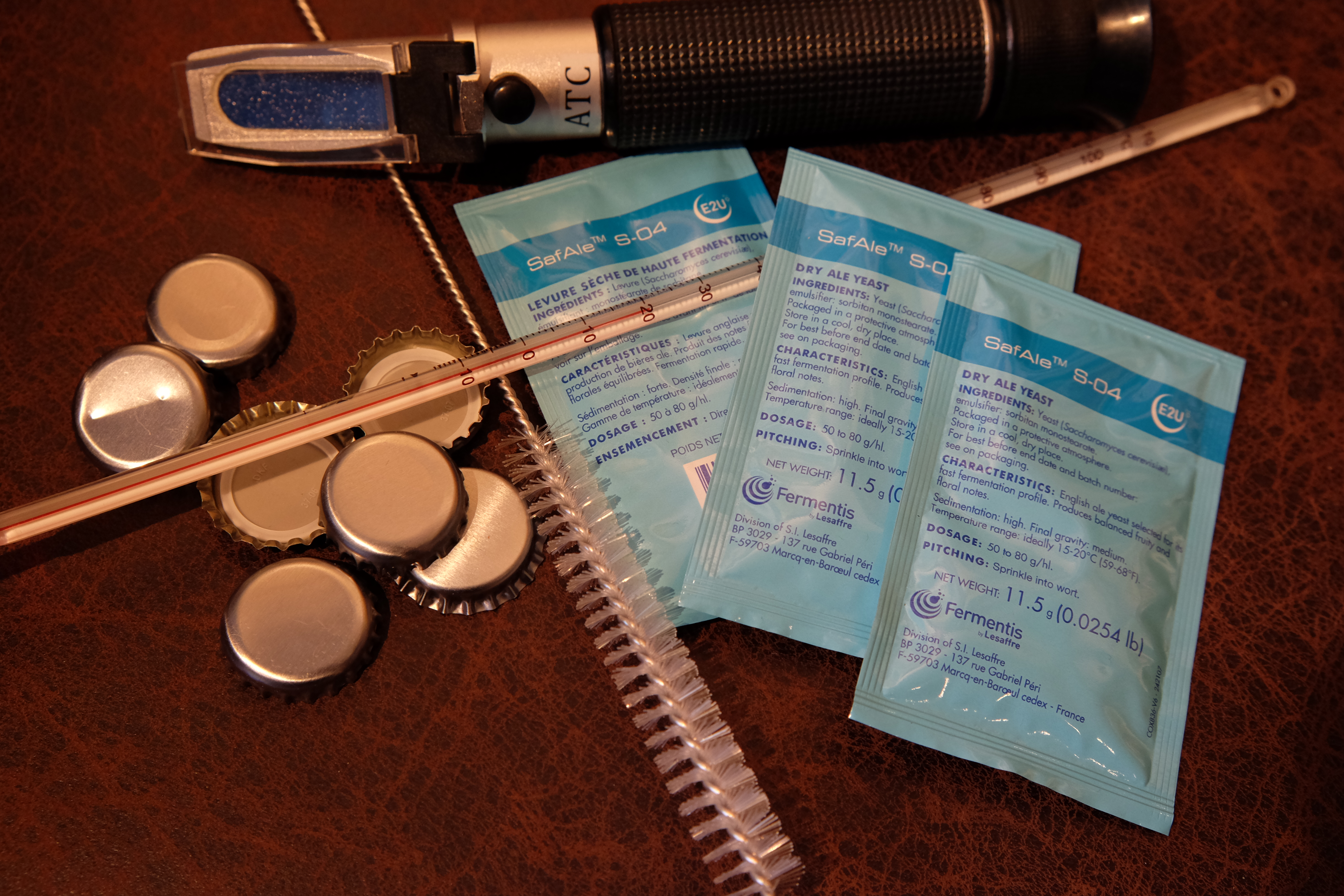
10 important things to know about brewing beer
You're making good progress and your new top brew is almost ready. Suddenly, a minute's carelessness puts a crimp in the process. Something goes wrong, breaks, or there are fewer hops or yeast than you’d thought.
Experienced brewers will probably realize this while they're brewing and adjusting, searching through their supplies, and keep on brewing. Finally, at the end of the brewing day, they enjoy their home-brewed beer with an added sense of satisfaction because they've done it again. It's a feeling (and a delicious beer) that everyone deserves, and with these 10 things to remember when brewing beer, you can achieve it yourself.
Make sure you have these items in stock so that your brewing process isn't interrupted. You only miss them when you need them!
When brewing beer, it makes sense to have a few things on hand as a reserve. If you discover halfway through a brewing process that something doesn't work or is missing, you can start all over again.
Make sure you are well prepared, so that you can pick up right where you left off: brewing an exceptionally delicious beer.
What do you need?
A spare airlock is a lifesaver if your clumsy helper accidentally steps on it with their foot. It takes up little space and costs next to nothing!
This also falls into the "small and cheap" category. Often the seal breaks when you least expect it, and this spare part is very useful when brewing. This is true not only for a tap or a gasket, but also for a variety of other small, cheap, and oh-so-necessary items. Be sure to check the condition of your items often.
3) Thermometer
Whether you have a digital thermometer or a traditional one, you will need a new one at some point. This item is essential to the brewing process, and you don't want a faulty thermometer to ruin your brew.
If you have a refractometer, you can easily check the density of the wort during brewing. It is also an added insurance against the hydrometer breaking during the brewing process. Not essential but very helpful tool whilst brewing. A win-win situation!
5) Have some extra yeast stored
Use a yeast bottle to store yeast or start a lab fermentation. The bottles can be sterilized and are therefore also suitable for taking a sample of your hot liquid.
Proper cleaning and sanitizing are at least 6 of every brewer's 10 commandments. Since you will always need your favourite detergents and they often run out from sheer enthusiasm; it is a good idea to always have an unopened container in hand.
7) Spray bottle
For self-filling or a ready-made sprayer for quick treatment of small items.
Useful when you're short of yeast, fermentation doesn't get going or stalls. In short, it's always useful. US-05 / BRY-97 or similar yeasts are best here.
Not only for making a yeast starter, but also for when your malt supply is a little smaller than expected. Whether you did not order enough of it or in case the sugar content is too low after brewing and you need to add some extra malt.
This has great value. Useful as a bittering hop when the need arises. Perle, Northern Brewer or Brewers Gold are ideal for this, usually widely available and therefore economical. They also have interesting aroma properties!

